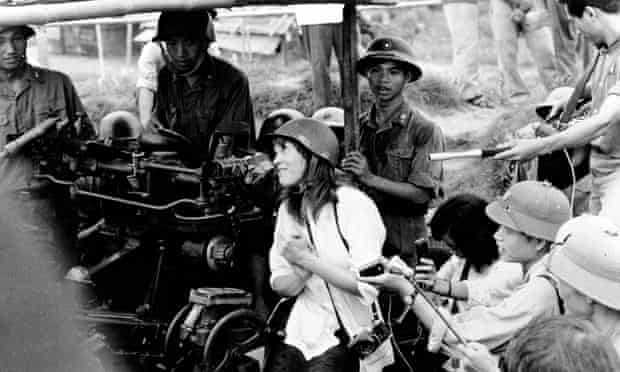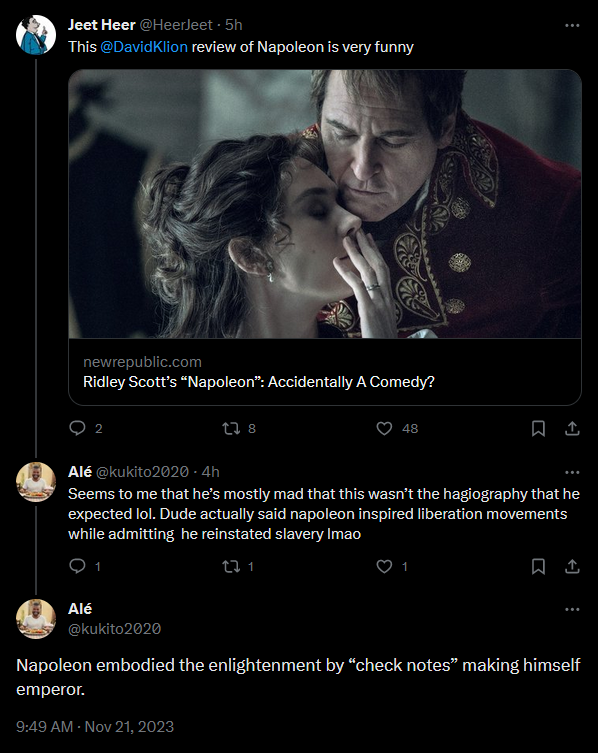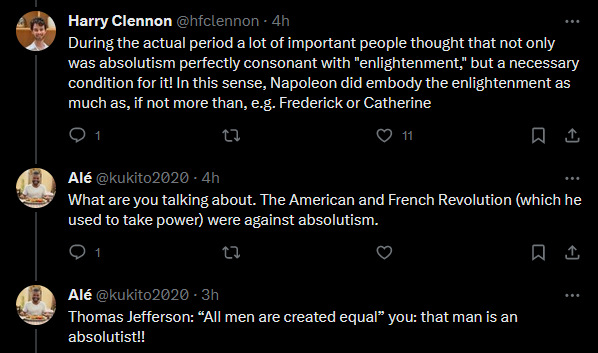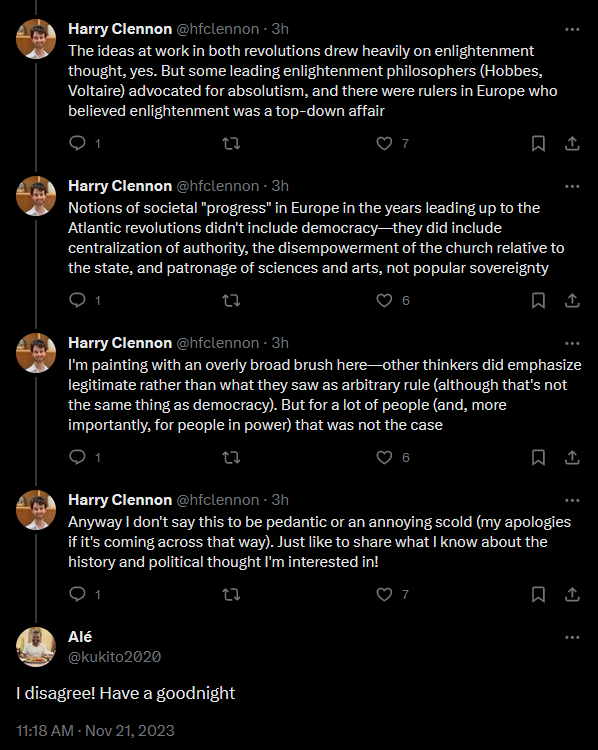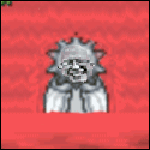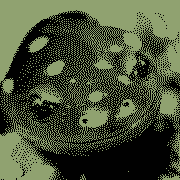- uninterrupted
- Jun 20, 2011
-
|
given the comment about only one of the pairs of congresscritters being reliably hawkish, it wouldn't surprise me if the buffoonery also includes just generally saying anti-war things beyond the general idiocy outlined there. Abzug was pretty well known for being anti-war and people still loving hate Jane Fonda for that poo poo 50 years later.
yeah that's what I figured, I didn't know if there was more to it. the meeting minutes after the trip have a comments from Abzug p much saying "no military aid, humanitarian aid only". somewhere I read that all the congress members also thought the ambassador to south Vietnam was a prick during the trip which, I guess maybe?
|
 #
?
Nov 18, 2023 01:24
#
?
Nov 18, 2023 01:24
|
|
- Adbot
-
ADBOT LOVES YOU
|

|
|
#
?
May 23, 2024 17:47
|
|
- Remulak
- Jun 8, 2001
-
I can't count to four.
-
Yams Fan
|
If in 2008 somebody posed with a Taliban anti-aircraft gun (and these were effective) the repercussions would have been a lot worse.
|
 #
?
Nov 18, 2023 01:41
#
?
Nov 18, 2023 01:41
|
|
- fermun
- Nov 4, 2009
-
|
If in 2008 somebody posed with a Taliban anti-aircraft gun (and these were effective) the repercussions would have been a lot worse.
Yeah, The Dixie Chicks were banned from most radio stations for 3 years and received thousands of death threats for one of them saying that she didn't support the Iraq War and was ashamed that Bush was from Texas.
|
 #
?
Nov 18, 2023 02:53
#
?
Nov 18, 2023 02:53
|
|
- vyelkin
- Jan 2, 2011
-

|
Yeah tons of people were anti-war in a vague sort of "bring the troops home, stop drafting teenagers to kill Vietnamese people" way and it didn't matter, but the public interpretation of Jane Fonda was that she wasn't just anti-war, she was supportive of the other side. It's like how today if you're a celebrity you would get very different responses and a very different enduring reputation if the media told everybody you said "Israel and Palestine should make peace" or "Ukraine and Russia should make peace" versus if the media told everybody that you openly support Russia and Hamas.
|
 #
?
Nov 18, 2023 03:33
#
?
Nov 18, 2023 03:33
|
|
- gradenko_2000
- Oct 5, 2010
-

HELL SERPENT
-
Lipstick Apathy
|
Jane Fonda ftw
|
 #
?
Nov 18, 2023 05:27
#
?
Nov 18, 2023 05:27
|
|
- Remulak
- Jun 8, 2001
-
I can't count to four.
-
Yams Fan
|
Yeah, The Dixie Chicks were banned from most radio stations for 3 years and received thousands of death threats
|
 #
?
Nov 18, 2023 07:24
#
?
Nov 18, 2023 07:24
|
|
- i say swears online
- Mar 4, 2005
-

|
in 2003 i remember vids of country radio stations getting together to put their dixie chicks cds under a steamroller but i can't find anything now
|
 #
?
Nov 18, 2023 12:58
#
?
Nov 18, 2023 12:58
|
|
- i say swears online
- Mar 4, 2005
-

|
lol this recent-ish video starts with LBJ's goldwater ad
https://www.youtube.com/watch?v=sbVPcPL30xc
|
 #
?
Nov 18, 2023 13:01
#
?
Nov 18, 2023 13:01
|
|
- Vox Nihili
- May 28, 2008
-

|
Yeah tons of people were anti-war in a vague sort of "bring the troops home, stop drafting teenagers to kill Vietnamese people" way and it didn't matter
The government still shot them for it.
|
 #
?
Nov 19, 2023 01:18
#
?
Nov 19, 2023 01:18
|
|
- Nix Panicus
- Feb 25, 2007
-

|
"The American revolution was against absolutism!" - guy who learned everything about the American revolution in 10th grade American history
|
 #
?
Nov 21, 2023 07:41
#
?
Nov 21, 2023 07:41
|
|
- Orange Devil
- Oct 1, 2010
-

Wullie's reign cannae smother the flames o' equality!
|
That's why they wanted to make Washington king.
|
 #
?
Nov 21, 2023 09:20
#
?
Nov 21, 2023 09:20
|
|
- Some Guy TT
- Aug 30, 2011
-

|
so im reading this short story that takes place during world war two in okinawa and theres this line in here about civilians being ordered to commit suicide to make the supplies last longer im just wondering if theres literally any documentation of the japanese doing anything like this because even my okinawa comic book by susumu higa didnt go that far
|
 #
?
Nov 25, 2023 03:35
#
?
Nov 25, 2023 03:35
|
|
- Some Guy TT
- Aug 30, 2011
-

|
I don't think that was the stated motivation. The Japanese military in Okinawa coerced civilians into suicide on the grounds that it was better to be dead than an American subject. Of the 150,000 civilian deaths in the battle of Okinawa, at least 40,000 people committed suicide or were killed by Japanese troops.
if not the stated motivation could it have been the actual motivation in the story i was reading the claim was being made from the perspective of someone associated with the japanese military
i had heard that before about japanese soldiers telling people to kill themselves for the war crimes reason but it had never occurred to me that this could be a cover for another reason because well thats already a perfectly plausible motivation for someone to kill themselves and id never heard this story used to suggest anything aside from the japanese being crazy fanatics before and it occurs to me that my okinawa comic book based on actual survivor testimony never mentioning any of this is making me kind of suspicious of the whole talking point because this is not a book thats at all friendly to the perspective of the japanese empire
like on what basis do you claim that a fourth of the civilian deaths in okinawa suicides or actually done by the japanese im not calling you a liar or anything im just curious who came up with those numbers and how
|
 #
?
Nov 26, 2023 04:29
#
?
Nov 26, 2023 04:29
|
|
- Chamale
- Jul 11, 2010
-

I'm helping!



|
if not the stated motivation could it have been the actual motivation in the story i was reading the claim was being made from the perspective of someone associated with the japanese military
i had heard that before about japanese soldiers telling people to kill themselves for the war crimes reason but it had never occurred to me that this could be a cover for another reason because well thats already a perfectly plausible motivation for someone to kill themselves and id never heard this story used to suggest anything aside from the japanese being crazy fanatics before and it occurs to me that my okinawa comic book based on actual survivor testimony never mentioning any of this is making me kind of suspicious of the whole talking point because this is not a book thats at all friendly to the perspective of the japanese empire
like on what basis do you claim that a fourth of the civilian deaths in okinawa suicides or actually done by the japanese im not calling you a liar or anything im just curious who came up with those numbers and how
That's a totally fair question. I've been googling it, and I think the 40,000 number includes Okinawans who were impressed into the military before and during the battle and died in combat, which according to this article is 25,000 people. It also includes death by starvation and execution, so the actual number of suicides may have been much lower than I thought, but I haven't seen a detailed breakdown. Most of the sources are in Japanese. Okinawa Prefecture made a peace monument in 1995 with the names of 240,000 people who died in the battle of Okinawa, so they must have done the research by then. There's a controversy over this that resurfaces periodically in Japan, as conservative nationalists try to rewrite the textbooks to say that very few civilians were killed by the IJA.
|
 #
?
Nov 26, 2023 04:58
#
?
Nov 26, 2023 04:58
|
|
- vyelkin
- Jan 2, 2011
-

|
It looks like one place this is discussed is Kenzaburo Oe's 1970 book Okinawa Notes, which is based on him traveling around the island and talking to people, including survivors of WW2. As far as I could tell it's never been translated into English, but he was sued over it in the 2000s and in the coverage of the court case I did find this:
I can't find what that "third-party publication" is, but evidently it is something that exists out there in the literature on the Battle of Okinawa, just not as prominently as the rationale that it was better to be dead than to be subjected to Americans occupation.
|
 #
?
Nov 26, 2023 13:29
#
?
Nov 26, 2023 13:29
|
|
- Teriyaki Hairpiece
- Dec 29, 2006
-

I'm nae the voice o' the darkened thistle, but th' darkened thistle cannae bear the sight o' our Bonnie Prince Bernie nae mair.
|
There are some great Okinawa stories from the Japanese perspective here
http://www.peace-museum.okinawa.jp/testimony/en/archive/
|
 #
?
Nov 27, 2023 14:15
#
?
Nov 27, 2023 14:15
|
|
- Some Guy TT
- Aug 30, 2011
-

|
just heard the book title "when the emperor was divine" for the first time and immediately got irritated either the emperor is divine or he isnt depending on how you define the word he doesnt stop being divine because he lost a war
is this a common idea and does anyone know where it comes from im assuming its the usual racist ignorance which id consider understandable coming from white people in the fifties but find rather offputting in woke twenty first century literature written and promoted by japanese americans
|
 #
?
Dec 2, 2023 10:31
#
?
Dec 2, 2023 10:31
|
|
- Danann
- Aug 4, 2013
-

|
https://twitter.com/LandsknechtPike/status/1729883179702788346
quote:
Today I would like to talk about something very interesting - 16th century Danubian river warfare!
The Danube River was an important part of Habsburg-Ottoman war in Hungary.
Both sides maintained a fleet of river warships!
Banditry was also a problem and traveling was unsafe.
I will focus on 16th century because this was a particularly violent phase of Habsburg-Ottoman wars in Central Europe. From 1527 until 1606 there was nearly constant fighting on the long frontier in Hungary and Croatia that divided the Ottoman Empire from the Habsburg monarchy.
The Habsburg-Ottoman conflict in this part of Europe was a continuation of the earlier Hungarian-Ottoman conflict after Sultan Suleiman invaded Hungary in 1526, decisively defeating the Hungarians at the Battle of Mohács that same year, where the King of Hungary Louis II died. This event effectively split Hungary into three parts as not only was the army of the Kingdom of Hungary destroyed but there was also a succession crisis. The Hungarian crown was claimed by both the Habsburg Archduke Ferdinand of Austria, who came in possession of Hungarian territories in the west and was supported by Croat nobility, and John Zápolya, who had the support of Hungarian nobility in the east and in Transylvania. Meanwhile the Ottomans came to directly control a large strip of land in the middle of Kingdom of Hungary by 1541, when they captured the city of Buda.
The conquest of Buda led to the establishment of the Budin Eyalet. The Ottoman pasha of Budin became the representative of the Sultan in Central Europe. The Budin pashas commanded a significant permanent military force consisting of 5,000 garrison soldiers, including 2,000 elite Janissaries, and a fleet of gunboats. The pashas were also supported by the sanjaks that reported to them, each with a military retinue of their own. Buda was also connected to Constantinople along the Danube corridor. It became an important outpost of the Ottoman empire deep in Central Europe, as the Ottomans were eager to expand further.
This naturally caused considerable concern among the Habsburgs. Buda was close to Vienna which the Ottomans could now theoretically reach very quickly via the Danube river. The control of this river therefore became of crucial importance for the war effort. The Danube river was furthermore also very important for trade and transport in the entire region. Traveling over land was very difficult in those times and rivers knit together the territories of the Pannonian Basin. The Danube was the artery tying together these vast lands. The importance of this river in the pre-industrial times was such that the Habsburg monarchy would later also be referred to as the Danubian monarchy. But from the Battle of Mohács in 1526 until the expulsion of Ottoman power from Hungary in 1699, most of the middle and all of the lower Danube was under Ottoman control.
The Ottomans regarded the Danube as their river, and used it very effectively for transport of guns and munitions. In 1556, for example, 30,000 cannon balls were loaded onto five galleys and shipped across the Black Sea and up the river to Buda. The river was not only important for their war effort and expansion into Europe but also brought a lot of wealth from trade. The customs offices in the Danube ports brought enormous revenues to the State Treasury.
The Ottomans were also fully aware how rivers could be used by their enemies as they had bitter experiences from the past. In the 15th century, the Hungarian were twice able to secure important victories over them with the help of superior river fleets. In 1456 John Hunyadi assembled a fleet of 200 ships on the Danube for the Belgrade campaign with which he broke through the Ottoman blockade to help relieve the city of Belgrade from siege. In 1476 his son Matthias Corvinus brought together an even larger river fleet of 330 vessels with which he transported the army to successfully conquer the Ottoman fortress of Šabac on the Sava river near Belgrade.
With both sides fully aware of the importance of the Danube river, it would soon become an important frontier in the Habsburg-Ottoman war. The border on the Danube between the two powers became the town of Komárom, just downstream from Vienna. This town is today split by the border between Hungary and Slovakia, and is known as Komárno in Slovakia. During the Habsburg-Ottoman war in Hungary it was a Habsburg fortress which prevented the Ottoman ships from reaching Vienna with its cannons. Komárom had already been bitterly contested between Ferdinand and John Zápolya as the two fought over control of western Hungary after 1526. This included a river naval battle where Zápolya's fleet of 68 vessels attacked Ferdinand's fleet of 49 ship and sunk 36 of them. However did not have enough troops to secure the Komárom castle.
Following the Ottoman conquest of Buda in 1541, the Habsburgs realized the importance of Komárom and had it fortified. Italian engineers turned it into a formidable modern star fort which could withstand significant bombardment and could be maintained with a minimal garrison. They also fortified the nearby city of Győr. The Ottomans would try to take the fortress of Komárom in an epic siege in 1594, but they were not successful. Komárom remained a Habsburg fort while the Danube below Komárom remained a Turkish river.

The fortress of Komárom. The border between two empires. Notice the powerful Danubian warships fighting on the river!
However Ottomans had a hard time securing their part of the river. The important Belgrade to Buda supply corridor was frequently under attack by raiders from Habsburg fortresses. Over the 16th century, this area witnessed constant border fighting, skirmishing and raiding from both sides. Not even peace treaties such as the Treaty of Edirne in 1547 and various truces could prevent this.
This was in part because of how the Habsburg Empire was structured. When the Habsburg-Ottoman war in Hungary began, the Habsburg Holy Roman Emperor Charles V controlled a vast empire which included possessions in Spain, Low Countries, southern Italy and Milan. Meanwhile his younger brother Ferdinand ruled the Austrian hereditary lands in his name. In 1526 Ferdinand also became the King of Bohemia, Hungary and Croatia. While this empire looked strong on paper, it was bogged down in a series of conflicts all over Europe and beyond, and was restrained by complex relationships with its own territories. It had many disadvantages compared to the more centralized Ottoman Empire where the Sultan wielded much more power over his subjects, and was able to obtain significantly more money and manpower for campaigns. Charles V was primarily concerned with wars against France and control over Italy. He would soon also have to deal with the rise of Protestantism in Germany, eventually fighting wars against the Schmalkaldic League. His strategy against Ottomans in Hungary was trying to make the best peace possible. He made it clear that he was not ready to commit major resources to a war in Hungary. On the other hand Ferdinand badly needed the resources to continue the war against the Ottomans. He understood the strategic importance of defending key forts along the frontier and wanted a strategy of aggressive forward defense.
However Ferdinand and the Habsburgs were greatly limited financially. The Protestants in the Holy Roman Empire did not want to finance the wars against the Turk unless the danger was imminent, as they were afraid the Catholic Habsburgs would build a strong army that could be potentially used against them. But the Ottomans rarely staged large invasions and most of the war against Habsburgs revolved around raiding and skirmishing, also called the "Kleinkrieg" (Little War). Such war presented huge costs to the Habsburgs who had to defend a long frontier and finance permanent garrisons and build fortifications. The Habsburgs also had to deal with troublesome nobility in their own lands, where taxes had to be approved by provincial estates. This limited their power and forced them to make compromises. Due to the lack of money, the Habsburgs transferred the control of many key fortresses to powerful local magnates from nobility, who would then garrison it with soldiers and defend it themselves. But this in turn meant that they could not fully control the actions of their nobles. Borderland nobility continued to engage in profitable raids into Ottoman territories, which provoked retaliatory raids and was a source of constant tension. Due to the size of their empire and their financial might, the Ottomans had command of more troops along the border and could stage large raids which sometimes even resulted in permanent gains. Therefore even during this supposed peace time, the Habsburgs were in danger of losing important forts.
An example of a borderland nobleman who greatly bothered the Ottomans was Nikola IV Zrinski whose raids were a subject of continuous complaints from the Ottomans to the Habsburgs. At one point the Ottomans wanted Zrinski and his followers excluded from a truce claiming that "these men said openly that their ancestors lived from banditry, and they intended to pass this manner of life on to their heirs." Zrinski eventually became the captain of the fortress of Szigetvár which had long been one of the important strategic fortresses from which marauding Christian soldiers staged raids on the Danube and endangered the link between Belgrade and Buda. In 1554 the Ottoman commanders who were entrusted to defend the border recognized the significance of the threat from the Habsburg fortresses of Szigetvár, Kaposvár, and Babocsa, and commented that "the border entrusted to us will never be free of infestation from those fortresses, nor will navigation along the Danube be safe, until we take those fortresses from them." But the Habsburgs had to rely on the borderland nobility for defense and could not have restrained them even if they wanted to. This meant that raiding continued.
It seems that the Habsburgs had an early advantage on the Danube in terms of firepower. In 1553 the commander of the Komárom river fleet Ferenc Zay was sent on a diplomatic mission. When he traveled down the Danube, he noted that "the Turks do not at this time have much of a fleet." Meanwhile the Habsburgs already had a respectable naval fleet of gunboats based at Komárom. In 1543 it was reported that this fleet was manned by more than 16,000 men. In event of invasion of Vienna the Habsburgs could also count on a large river fleet sent from the Holy Roman Empire. In 1532 Charles V sent an impressive 80,000-man war flotilla funded by the Imperial Diet to meet an anticipated Ottoman siege of Vienna. This siege eventually didn't happen because the Ottomans were stuck at the Siege of Güns and later abandoned the campaign, but it shows the might of the fleet that could have been mobilized during Charles V's reign.
It seems that the weakness of the Ottoman river fleet emboldened the Habsburgs to start raiding the Danube. In 1556 the Ottomans complained to Ferdinand that his "band of robbers from Veszprem and Szigetvár have destroyed 927 ships on the Danube, belonging to Muslims." Soon afterwards the crew from Szigetvár attacked fourteen more ships. These marauders also captured people and demanded ransoms. In 1554 they captured "some Latin craftsmen" together with "other craftsmen from Belgrade," for whom they were demanding a ransom of 2,000 to 3,000 florins each. In 1565 they conducted a daring raid capturing the captain of the Buda naval infantry near Osijek. That same year the Ottomans were also worried about reports that the Habsburgs had a fleet of 700 warships at Komárom.
The danger of travelling on Danube on the Ottoman territory due to constant marauding was well illustrated by the Imperial ambassador Ogier Ghiselin de Busbecq who traveled on the Danube from Buda to Belgrade in 1554 on his journey to Constantinople. While the river route was safer than by road, and took only five days instead of twelve by land, it was still very unsafe and full of dangers due to bandits preying on ships. In one of his letters he described how they had to travel almost without a stop day and night and were endangered by overhanging trees and water mills:
"The vessel on board which I sailed was towed by a tug manned by twenty-four oarsmen; the other boats were pulled along by a pair of sweeps. With the exception of a few hours during which the wretched galley-slaves and the crew took food and rest, we travelled incessantly. I was much impressed on this occasion with the rashness of the Turks, for they had no hesitation in continuing their voyage during the night, though there was no moon and it was quite dark, amid a gale of wind. We often, to our very great danger, encountered mills and trunks and branches of trees projecting from the banks, so that it frequently happened that the boat was caught by the gale and came crashing on to the stumps and branches which lined the river side. On such occasions it seemed to me that we were on the point of going to pieces. Once, indeed, there was a great crash, and part of the deck was carried away. I jumped out of bed, and begged the crew to be more careful. Their only answer was 'Alaure,' that is, 'God will help us;' and so I was left to get back to my bed and my nap—if I could! I will venture to make one prophecy, and that is, that this mode of sailing will one day bring about a disaster."
But the Ottomans soon responded and began reinforcing their river fleet due to these problems. By 1566 there were three Ottoman admirals on the Danube and its tributaries. The first one's base was Buda and his squadron patrolled the upper reaches of the river within the borders of the Ottoman state up to Komárom. The second was based in Mohács while the third Ottoman flotilla was on the river Sava. In 1566 Sultan Suleiman conducted a large scale campaign with a significant invasion force which eventually captured the fort of Szigetvár in an epic siege where Nikola IV Zrinski and his men made a heroic last stand. This campaign included reinforcing the river fleet. 250 new vessels were built in Smederevo, 140 in Vidin and several more in various other Ottoman river ports.
The 1566 campaign eventually led to another peace treaty in 1568 which concluded the most intense part of the "Little War" and was subsequently renewed in 1576, 1584, and 1591.
However in 1593 the Long Turkish War began. The Ottomans invaded with a large force and conquered Győr in 1594. They tried to take the nearby Komárom but the well fortified river fortress town was able to withstand the siege, thereby continuing to secure the border defense of the Habsburgs on the Danube River. Győr was soon reclaimed in 1598.
The Long Turkish War ended with a stalemate in 1606 when it was concluded with the Peace of Zsitvatorok. Neither side being able to make significant gains. This stabilized the conditions on the Habsburg-Ottoman frontier and led to nearly sixty years of calm.

Peace Negotiations in Zsitvatorok in 1606. This contemporary portrayal gives us a valuable depiction of how river vessels looked like at the time.
To conclude. While the Danube River witnessed only minor battles and skirmishes in the 16th century, the maintenance of powerful river fleets was crucial for both sides, as both sides wanted to secure control over their part of the Danube River during the "Little War" of constant raiding and skirmishing. Danube river warfare presents another important chapter in the long history of Habsburg-Ottoman wars.
Sources:
James Tracy, "The Road to Szigetvár: Ferdinand I's Defense of His Hungarian Border, 1548–1566" in Austrian History Yearbook, Volume 44, April 2013, 17-36.
Rossitsa Gradeva, "War and Peace Along the Danube: Vidin at the end of the Seventeenth Century" in Oriente Moderno, Nuova serie 20 (81)/1, (2001), 149-175.
The Life and Letters of Ogier Ghiselin de Busbecq, Vol I (London: Kegan Paul, 1881), 93-94.

riverine warfare sounds cool but it's also weirdly absent in popular media except for niche games
hungary has a legit reason for an admiralty and that reason is the danube river
|
 #
?
Dec 2, 2023 23:14
#
?
Dec 2, 2023 23:14
|
|
- mawarannahr
- May 21, 2019
-

|
longest tweet ever?
|
 #
?
Dec 2, 2023 23:31
#
?
Dec 2, 2023 23:31
|
|
- gradenko_2000
- Oct 5, 2010
-

HELL SERPENT
-
Lipstick Apathy
|
Chang and Eng Bunker, the two famous conjoined twins from Siam, owned slaves???
I had never heard that before today, gently caress
|
 #
?
Dec 6, 2023 14:11
#
?
Dec 6, 2023 14:11
|
|
- sullat
- Jan 9, 2012
-

|
why can't a god lose their divinity?
alternatively, the title might just be omitting the "in the public conscious" part, in the expectation that prospective readers are smart enough to not take the title literally
Falling behind on research because you're sending out your mages to fight is the number 1 reason most gods end up losing their divinity.
|
 #
?
Dec 6, 2023 14:22
#
?
Dec 6, 2023 14:22
|
|
- mawarannahr
- May 21, 2019
-

|
truly showing what people are capable of if they don't let themselves held back by their circumstances
Helen Keller learned to write so she could write "in favor of refusing life-saving medical procedures to infants with severe mental impairments or physical deformities, saying that their lives were not worthwhile and they would likely become criminals"
|
 #
?
Dec 9, 2023 23:15
#
?
Dec 9, 2023 23:15
|
|
- mycomancy
- Oct 16, 2016
-
|
Helen Keller learned to write so she could write "in favor of refusing life-saving medical procedures to infants with severe mental impairments or physical deformities, saying that their lives were not worthwhile and they would likely become criminals"
I dunno if this is a joke or not, but if not please cite your source.
|
 #
?
Dec 9, 2023 23:27
#
?
Dec 9, 2023 23:27
|
|
- mawarannahr
- May 21, 2019
-

|
I dunno if this is a joke or not, but if not please cite your source.
https://www.disabilitymuseum.org/dhm/lib/detail.html?id=3209
quote:
IR: Much of the discussion aroused by Dr. Haiselden when he permitted the Bollinger baby to die centers around a belief in the sacredness of life. If many of those that object to the physician's course would take the trouble to analyze their idea of "life," I think they would find that it means just to breathe. Surely they must admit that such an existence is not worth while. It is the possibilities of happiness, intelligence and power that give life its sanctity, and they are absent in the case of a poor, misshapen, paralyzed, unthinking creature. I think there are many more clear cases of such hopeless death-in-life than the critics of Dr. Haiselden realize. The toleration of such anomalies tends to lessen the sacredness in which normal life is held.
There is one objection, however, to this weeding of the human garden that shows a sincere love of true life. It is the fear that we cannot trust any mortal with so responsible and delicate a task. Yet have not mortals for long ages been entrusted with the decision of questions just as momentous and far-reaching; with kingship, with the education of the race, with feeding, clothing, sheltering and employing their fellowmen? In the jury of the criminal court we have an institution that is called upon to make just such decisions as Dr. Haiselden made, to decide whether a man is fit to associate with his fellows, whether he is fit to live.
It seems to me that the simplest, wisest thing to do would be to submit cases like that of the malformed idiot baby to a jury of expert physicians. An ordinary jury decides matters of life and death on the evidence of untrained and often prejudiced observers. Their own verdict is not based on a knowledge of criminology, and they are often swayed by obscure prejudices or the eloquence of a prosecutor. Even if the accused before them is guilty, there is often no way of knowing that he would commit new crimes, that he would not become a useful and productive member of society. A mental defective, on the other hand, is almost sure to be a potential criminal. The evidence before a jury of physicians considering the case of an idiot would be exact and scientific. Their findings would be free from the prejudice and inaccuracy of untrained observation. They would act only in cases of true idiocy, where there could be no hope of mental development.
It is true, the physicians' court might be liable to abuse like other courts. The powerful of the earth might use it to decide cases to suit themselves. But if the evidence were presented openly and the decisions made public before the death of the child, there would be little danger of mistakes or abuses. Anyone interested in the case who did not believe the child ought to die might be permitted to provide for its care and maintenance. It would be humanly impossible to give absolute guarantees for every baby worth saving, but a similar condition prevails throughout our lives. Conservatives ask too much perfection of these new methods and institutions, although they know how far the old ones have fallen short of what they were expected to accomplish. We can only wait and hope for better results as the average of human intelligence, trustworthiness and justice arises. Meanwhile we must decide between a fine humanity like Dr. Haiselden's and a cowardly sentimentalism.
HELEN KELLER.
Wrentham, Mass.
|
 #
?
Dec 9, 2023 23:30
#
?
Dec 9, 2023 23:30
|
|
- mycomancy
- Oct 16, 2016
-
|
...wow. Thanks, much appreciated.
Also, lmao
|
 #
?
Dec 9, 2023 23:57
#
?
Dec 9, 2023 23:57
|
|
- Adbot
-
ADBOT LOVES YOU
|

|
|
#
?
May 23, 2024 17:47
|
|

